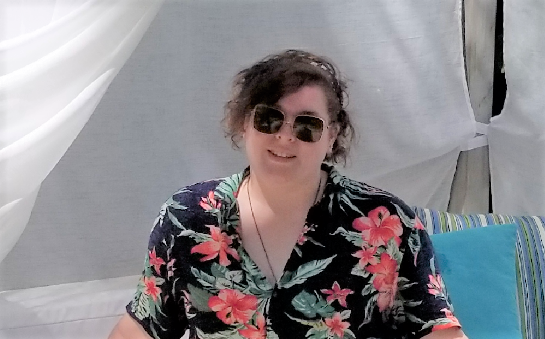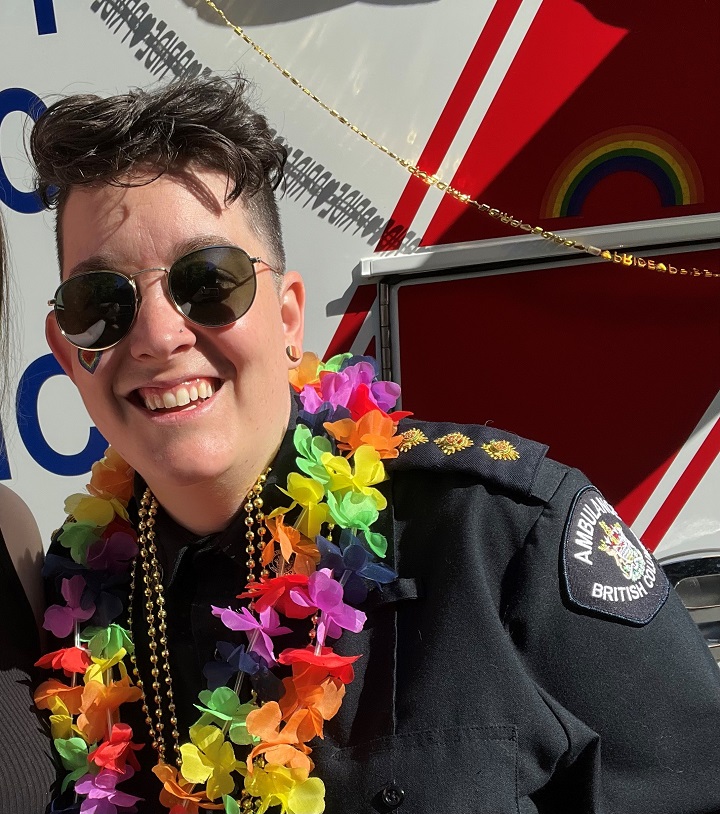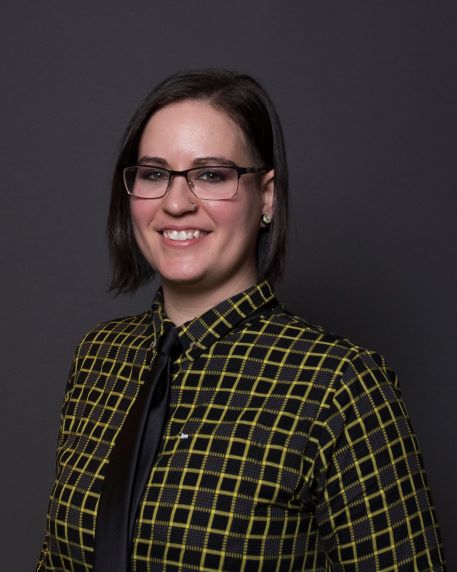"This is not about erasing men and women but rather acknowledging that man and woman are two of many — stars in a constellation that do not compete but amplify one another's shine," Alok Vaid-Menon,
Beyond the Gender Binary
What is non-binary?
Non-binary refers to diverse people whose gender identity does not fall within (or exclusively within) the binary gender system of woman or girl, man or boy. Some individuals self-identify as non-binary, whereas, other may use terms such as Gender Non-conforming, Genderqueer, or Agender.
Similar to Pride Month in June where we honoured and uplifted the larger 2SLGBTQIA+ community, International Non-Binary People's Day (held annually on July 14) aligns with PHSA's core values and teachings to encourage a culture of equity, justice and respect for all individuals.
For International Non-Binary People's Day 2023, PHSA profiling non-binary staff members who shared their thoughts about what being non-binary means to them, what health-care providers can do to best provide care to non-binary people, and what family, friends, and coworkers can do to practice strong allyship to non-binary people.

What does being non-binary mean to you?
I’m specifically agender, and use they/them pronouns. I have never associated gender with anything but a title. In the grand scheme of things, its meaning is upon each individual person.
For me, as long as the person is happy, healthy and not hurting anyone including themselves, then I will do my best to make the other person comfortable.
What can health-care providers do to best provide care to non-binary people?
Health-care providers can best care for enbys (non-binary people) by providing a judgement-free, respectful space. It would be better if the charts could be updated with “preferred name” at the top, with “legal name” underneath and pronouns also at the top.
We need every health-care provider to ask less gendered questions. For example, instead of “when was your last period?” the provider could ask something like, “Is there a possibility that you could be pregnant?"
Normalizing things starts with allies, and I hope every health-care provider can at least make the effort to respect different identities, even if they don’t understand them.
The important thing is about keeping a safe and inclusive space for enbys to be comfortable asking questions and making informed decisions about their health. It’s very hard to do that when we don’t feel seen or respected.
Have any resources and/or services in B.C. been helpful for you, your loved ones and allies? Where can someone start if they want to learn more?
Honestly, therapy has been really helpful for my loved ones to come to an understanding. It’s not always accessible, especially here in the Lower Mainland, so in those cases, my recommendation is to read, watch and learn from non-binary people. Follow Instagram accounts, read books with non-binary characters in it, preferably written by enbys, etc.
The
Vancouver Public Library has many resources written by non-binary people; look up stores, like Peau de Loup that are non-binary owned businesses and support them.
Transequality.org has some great introductory resources to learn more about how to be respectful and knowledgeable.

What does being non-binary mean to you?
To me, being non-binary, is like taking in a deep breath of fresh air. It’s the freedom to be exactly who I need to be and express that without fear created by expectations or preconceived cultural norms. It has allowed for me to move through the world with a different relationship between self-expression and self-love, something that for a long time I struggled with. It is allowing space for me to explore who I am, and be the person I want to be.
What can health-care providers do to best provide care to non-binary people?
Health-care providers can be curious and kind.
Introduce yourself and include your pronouns, inviting a welcoming space without forcing yourself into the space of non-binary people.
This simple act, lets the person know you are an ally, that you are aware of gender fluidity and that you are here to help them as they choose to present themselves.
Listen and be respectful of their patient presentation knowing that there is a difference between sex and gender identity, sexual orientation and pronoun choice. The patient is an expert in their own identity, trust that they will inform the care they need.
Have any resources and/or services in B.C. been helpful for you, your loved ones and allies? Where can someone start if they want to learn more?
Since moving to B.C., I have found the resources on the
Trans Care BC website to be useful, and being linked in with a care navigator was wonderful. There is a lot of information on the site that has been vetted for accuracy, and can support whatever sort of journey you may be on, whether as an ally or a member of the community. It was a great place to start for me and I recommend it to anyone seeking additional information.

What does being non-binary mean to you?
It means giving myself permission to exist in a space that isn’t rigidly defined. It means allowing myself to present in any way that feels affirming, and not feeling shame for not fitting the binary.
What can health-care providers do to best provide care to non-binary people?
Don’t begin from a place of assumption. It can be so dysphoric [uneasy or dissatisfying] attending medical appointments, especially when people assume based on your body, your name, your sex assigned at birth, etc., what your pronouns are, and make decisions without you about what kind of care you need.
Being able to share your name (even if it isn’t on your ID), gender, and pronouns at intake and having your identity respected by everyone from receptionists to nurses to doctors. It helps so much.
Being able to access compassionate, gender-affirming care really helps to dismantle some of the barriers non-binary people face. Educating yourself is so important, and so is connecting with each non-binary person to find out what works for them as individuals. We are all different.
Have any resources and/or services in B.C. been helpful for you, your loved ones and allies? Where can someone start if they want to learn more?
There are many iterations of it, but the
genderbread person is a great place to start.
Beyond the Gender Binary by Alok Vaid-Manon, Getting Curious with Johnathan Van Ness, Trans Care BC,
Qmunity.
For more information
If you're part of the non-binary community or want to be a better ally to 2SLGBTQIA+ communities, there are many ways that you can learn more during International Non-Binary People's Day, and throughout the year.
- For a quick reference for learning about inclusive terminology, visit Trans Care BC's Education Centre.
- Download printable guides on:
- Check out Trans Care BC's list of books in the Parents and Families section of the website.
- Enrol in Trans Care BC's free, self-directed online courses. Course offerings include Introduction to Gender Diversity, Indigenous Gender Diversity, Supporting Gender Creative Children and Their Families, Gender-Affirming Primary Care, and more.
- Read
PHSA's Pride Month article for more information and resources.

